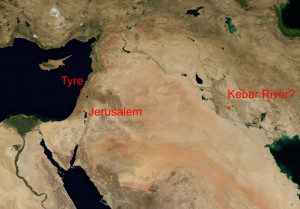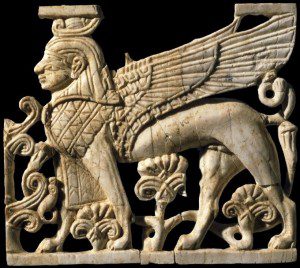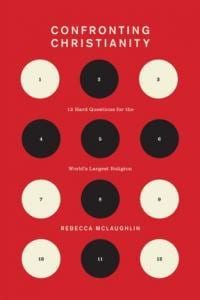 We all prefer friends who are just like us … personality, age, education, social class, marital status, politics. This is simply human nature it appears – with both good and bad consequences. We tend to self-segregate. Should the church be any different?
We all prefer friends who are just like us … personality, age, education, social class, marital status, politics. This is simply human nature it appears – with both good and bad consequences. We tend to self-segregate. Should the church be any different?
I read an article published in the Proceedings of the National Academy of Science (aka PNAS) a while back where the investigators looked at self-segregation as a function of institution size. Both simulation and survey methods were used in the study. This article, Structural effect of size on interracial friendship, explored the influence that the size of a social context has on the diversity of interactions. The article itself requires a subscription to access, but the results have also made several news stories including this one at Science Daily and this one, School size plays a role in interracial friendships, that found its way to USA Today.
The general assumption is that people prefer to interact with people who are “like them.” To quote from the paper: “Most social scientists assume that individuals prefer to make friends with people of similar social attributes, including race/ethnicity, relation, age, education, and social class. However, any individual’s likelihood of finding a satisfactory friend in terms of group similarity is constrained by the opportunities available in the person’s social context.” The purpose of the study published in PNAS was to investigate the structural effect of context size while holding everything else constant. The paper focuses on race for comparison of survey data from high schools – but the conclusions are not limited to race. They apply as well to age, education, social class and other selection parameters.
The major conclusions of this PNAS study are:
(1) Total context size has a distinct effect on interracial friendship. An increase in the size of the total group decreases the likelihood of forming an interracial friendship.
(2) The effect of size increases when the number of variables for preference increases. (Just race, race plus personality, race plus personality plus academic ability …). The groups become increasingly homogeneous as the size of the total pool increases because there is an increasing chance to find friends who match.
(3) “Noise” disturbs the trends somewhat. There will always be real anecdotal exceptions to the general pattern.
(4) The observations are not limited to interracial relations, but have application to many other parameters. While the surveys focus on race – but the simulations are far more general.
I think this study may have profound implications for how we think about church dynamics. According to this study a large church – however diverse it may be as a whole – will have less real diversity of interaction and fellowship than a smaller church of similar global diversity.
Is this good?
Is it Bad?
… or …
Is it indifferent, of minor concern?
Four observations …
First: Several years ago a megachurch (which one is irrelevant) put out a short video that was designed to encourage people to join a small group. The video opened with a couple lost in a mass of people in worship, discussed the search for a comfortable small group, and ended up with the couple happily involved in a small group of “people just like you.” The church is lines of people in the service and circles of friends “just like you.” That phrase bothered me a bit when I first saw the video – and when this PNAS article came to my attention it put a finger on some of my unease.
Second: Around the same time I had a conversation with a person who complained that the small group facilitator at their church kept sending them “uninteresting” people. They had to tell the facilitator to stop – and provided some guidance on the type of person (just like them) they wanted in the group. The person I was speaking with felt this was an “of course” kind of issue, and there was nothing wrong with limiting fellowship to “interesting” people.
To what extent should Christian fellowship be about finding people “just like you?”
There is certainly value in affinity groups and accountability or fellowship groups of people at similar places. Sometimes we need the safety of similarity. But there is also value in diverse interaction with people who are not “just like you.”
Should a church encourage diverse interactions and fellowship?
If so, how can this be done?
Third: In a conversation with a friend where this article came up, my friend noted that some 20 or so years ago he had been part of a medium sized, relatively diverse church. The pastor of that church had commented that he was breaking every rule set forth by the church growth movement … and glad of it. He preferred his diverse relational church. I don’t bring this up as some golden example – just as a contrast to the focus on size that seems to run through the suburban (mostly white) evangelical church. Can we truly value both size and diverse relationship?
As laypeople, what should we be looking for in a church?
What kind of church should leadership try to cultivate?
To what extend should we or should we not focus on size?
Finally: We live today in a highly mobile society faced with a plethora of choices. We are not limited to a neighborhood, a denomination, or even a city. On top of the competition from a variety of churches and other social groupings, we can find people “just like us” in virtual gatherings formed on the internet. One of the authors of the original article is quoted in the Science Daily link:
One potential negative social consequence of the Internet as a social interaction medium in an ever more globalized world is to encourage social isolation and social segmentation by expanding group size immensely,” Cheng said.
This leads me to my last question:
Is valuing diversity of fellowship simply a losing battle, one the church can’t afford to worry about?
Is the answer that we need to yield to these pressures to reach and keep people?
My Opinion (take it for what it is worth): I think churches should promote a culture with multiple intersecting and overlapping groups. Rather than optional “programs” these are circles that cultivate diverse relationship. There is nothing wrong with a fellowship group of people “just like me” when also involved in a wide range of other community activities.
If you wish to contact me directly you may do so at rjs4mail[at]att.net
If interested you can subscribe to a full text feed of my posts at Musings on Science and Theology.
This is a lightly edited repost – but on a topic that remains worth careful thought.


 But most importantly, Christianity is a resurrection religion. The miracles performed by Jesus are significant, but not crucial. Timothy Luke Johnson in his recent book
But most importantly, Christianity is a resurrection religion. The miracles performed by Jesus are significant, but not crucial. Timothy Luke Johnson in his recent book 
 He also comments:
He also comments:
 Our position in creation is defined by relationship and vocation. As humans we are created to be in relationship with God and to serve as his image in the world. To rule and subdue as his image is not a calling to destroy and deface. Rather it calls for care of the ‘garden’ extended to all of creation, to fight against God’s enemies, to rule for the good of the ruled not aggrandizement of the ruler. We rule under God, to image God’s care to all of creation as best we can.
Our position in creation is defined by relationship and vocation. As humans we are created to be in relationship with God and to serve as his image in the world. To rule and subdue as his image is not a calling to destroy and deface. Rather it calls for care of the ‘garden’ extended to all of creation, to fight against God’s enemies, to rule for the good of the ruled not aggrandizement of the ruler. We rule under God, to image God’s care to all of creation as best we can.
 The pairings continue – with Simeon and Anna, the lost coin and the lost sheep, the parable of the persistent widow followed by the pharisee and the tax collector. The Twelve were all male – but for the most part the segregation stops there. Women were with Jesus and involved in his ministry from beginning to end, at the cross, the first at the empty tomb. And turning to Acts, they were with the apostles in Jerusalem where … They all joined together constantly in prayer, along with the women and Mary the mother of Jesus, and with his brothers. (1:14)
The pairings continue – with Simeon and Anna, the lost coin and the lost sheep, the parable of the persistent widow followed by the pharisee and the tax collector. The Twelve were all male – but for the most part the segregation stops there. Women were with Jesus and involved in his ministry from beginning to end, at the cross, the first at the empty tomb. And turning to Acts, they were with the apostles in Jerusalem where … They all joined together constantly in prayer, along with the women and Mary the mother of Jesus, and with his brothers. (1:14)






